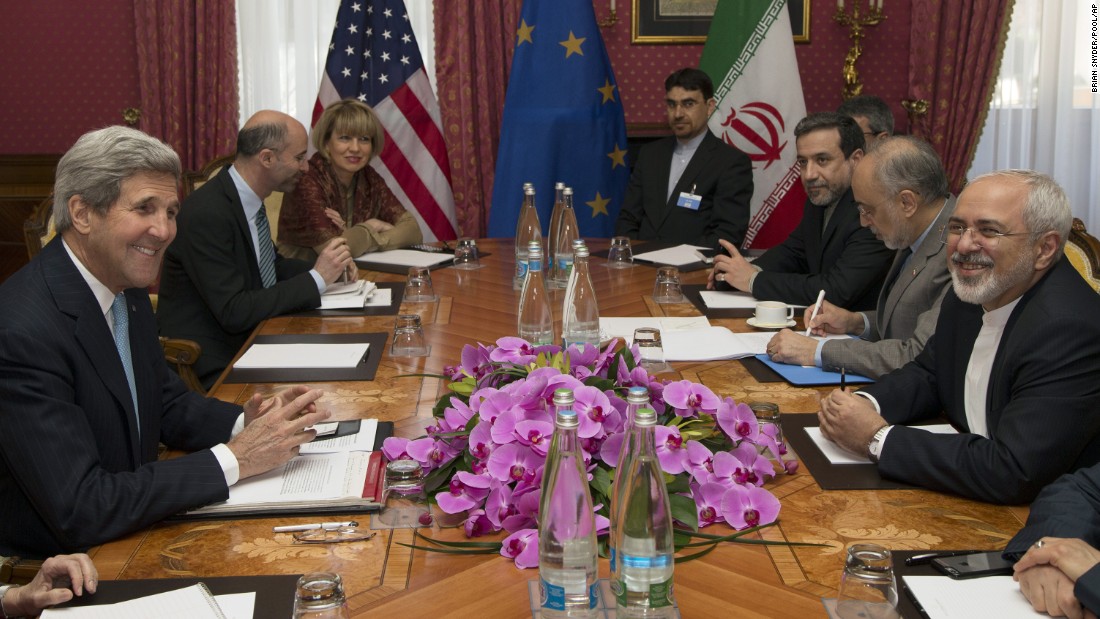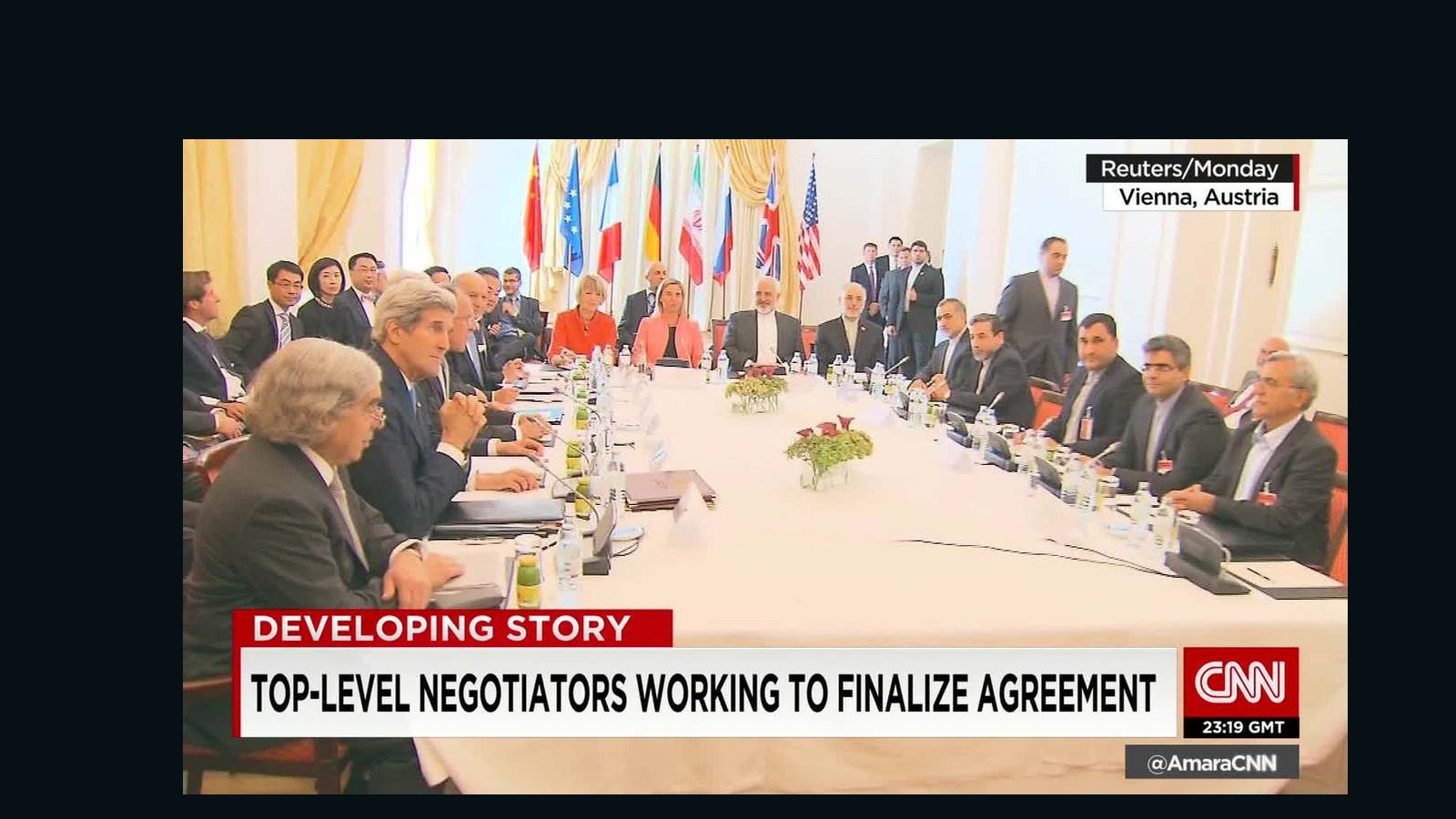In recent developments, Iran has initiated nuclear talks with its allies, sparking global attention and discussions about the future of international diplomacy and nuclear non-proliferation efforts. This historic step comes at a time when geopolitical tensions are high, and the world is closely watching how these negotiations unfold. The discussions could potentially reshape the Middle East's political landscape and redefine Iran's relationship with Western nations.
The decision by Iran to engage in nuclear talks with its allies marks a significant shift in its foreign policy strategy. For years, Iran has been under scrutiny for its nuclear program, leading to sanctions and diplomatic isolation. However, this latest move suggests a willingness to collaborate and find common ground with global powers. The talks aim to address concerns over Iran's nuclear capabilities and ensure compliance with international agreements.
As the world watches this unfolding drama, it is crucial to understand the implications of these nuclear talks. This article delves into the background, key players, potential outcomes, and the broader geopolitical context surrounding Iran's decision to engage with its allies. By examining the historical context and current developments, we aim to provide a comprehensive overview of this critical issue.
- Karnataka Elections 2025 A Comprehensive Analysis And What To Expect
- Hdhub4u Cat Hindi Dubbed Your Ultimate Guide To Highquality Content
Table of Contents
- Background of Iran's Nuclear Program
- Key Players in the Talks
- Historical Context of Nuclear Diplomacy
- Current Status of the Negotiations
- Potential Outcomes of the Talks
- Geopolitical Impact and Implications
- Economic Consequences of the Talks
- International Reactions and Perspectives
- Technical Aspects of Nuclear Talks
- Conclusion and Future Outlook
Background of Iran's Nuclear Program
Iran's nuclear program has been a contentious issue for decades, with concerns about its potential to develop nuclear weapons. Since the early 2000s, the international community has imposed sanctions on Iran due to its refusal to comply with the Nuclear Non-Proliferation Treaty (NPT). Despite these pressures, Iran has maintained that its nuclear activities are purely for peaceful purposes, such as energy production and medical research.
In 2015, Iran signed the Joint Comprehensive Plan of Action (JCPOA), commonly known as the Iran Nuclear Deal, with the P5+1 countries (the United States, the United Kingdom, France, Russia, China, and Germany). This agreement aimed to limit Iran's nuclear activities in exchange for the lifting of economic sanctions. However, the deal was later abandoned by the United States in 2018, leading to increased tensions and a resurgence of sanctions.
Today, as Iran restarts nuclear talks with its allies, the focus is on reviving the JCPOA and ensuring that Iran adheres to international standards. These discussions are critical in preventing the escalation of conflict in the region and promoting global peace.
- Nikki Mudarris Net Worth 2025 The Ultimate Guide To Her Wealth And Success
- Hd Hub Tv Your Ultimate Guide To Highdefinition Entertainment
Key Players in the Talks
Iran's Role in the Negotiations
Iran plays a central role in the nuclear talks, as the primary party under scrutiny. The Iranian government has emphasized its commitment to transparency and cooperation while advocating for the removal of sanctions. Key figures within the Iranian regime, including President Ebrahim Raisi and Foreign Minister Hossein Amir-Abdollahian, are actively involved in the negotiations.
Western Powers and Their Stance
The Western powers, particularly the European Union, the United States, and the United Kingdom, are pivotal players in these discussions. They aim to ensure that Iran complies with the terms of the JCPOA and does not pursue nuclear weapons. The United States, under the Biden administration, has shown willingness to rejoin the deal, provided Iran meets specific conditions.
Russia and China's Influence
Russia and China, as permanent members of the UN Security Council, also have significant influence in the nuclear talks. Both countries support lifting sanctions on Iran and advocate for a peaceful resolution to the crisis. Their involvement adds complexity to the negotiations, as they balance their strategic interests with global non-proliferation goals.
Historical Context of Nuclear Diplomacy
The history of nuclear diplomacy involving Iran dates back to the 1970s when the country first began developing its nuclear program. Initially supported by Western nations, the program took a different trajectory following the 1979 Islamic Revolution. Since then, Iran's nuclear ambitions have been a source of contention, leading to numerous rounds of negotiations and agreements.
The JCPOA marked a turning point in nuclear diplomacy, demonstrating that multilateral agreements could address complex international issues. However, the withdrawal of the United States from the deal in 2018 undermined its effectiveness and reignited concerns about Iran's nuclear capabilities. The current talks aim to restore the trust and cooperation established by the JCPOA.
Current Status of the Negotiations
As of the latest developments, the nuclear talks between Iran and its allies are ongoing, with both sides expressing cautious optimism. The negotiations are being facilitated by the European Union, which serves as a mediator between the parties. Key issues under discussion include the scope of Iran's nuclear activities, the timeline for lifting sanctions, and verification mechanisms to ensure compliance.
Despite progress in some areas, significant challenges remain. Iran demands the immediate lifting of all sanctions, while Western powers insist on verifiable measures to limit Iran's nuclear program. These differences highlight the complexity of the negotiations and the need for compromise from all parties involved.
Potential Outcomes of the Talks
Successful Revival of the JCPOA
If the negotiations succeed, the JCPOA could be revived, leading to the lifting of sanctions on Iran and a reduction in regional tensions. This outcome would benefit both Iran and the international community by promoting economic growth and stability in the Middle East.
Prolonged Stalemate
Alternatively, the talks could result in a prolonged stalemate if the parties fail to reach a consensus. Such an outcome would exacerbate existing tensions and increase the risk of conflict. It could also lead to further isolation of Iran and a hardening of positions by all sides.
Unilateral Actions
In the absence of a breakthrough, some countries may resort to unilateral actions, such as imposing additional sanctions or pursuing military options. This scenario would be detrimental to global peace and security, highlighting the importance of diplomacy in resolving the crisis.
Geopolitical Impact and Implications
The success or failure of the nuclear talks will have far-reaching geopolitical implications. A positive outcome could strengthen multilateralism and reinforce the role of international institutions in conflict resolution. It could also enhance Iran's standing in the international community and open new opportunities for cooperation.
Conversely, a failure to reach an agreement could destabilize the region, fueling tensions between Iran and its neighbors. It could also embolden other countries to pursue nuclear programs, undermining global non-proliferation efforts. The stakes are high, and the world is watching closely as these negotiations proceed.
Economic Consequences of the Talks
The economic impact of the nuclear talks is significant, as sanctions have severely affected Iran's economy. A successful agreement could lead to the lifting of sanctions, allowing Iran to resume oil exports and attract foreign investment. This would boost the country's GDP and improve living standards for its citizens.
On the other hand, a failure to reach an agreement could result in continued economic hardship for Iran. Sanctions would remain in place, stifling economic growth and exacerbating social unrest. The international community would also face challenges in managing the fallout from a prolonged crisis.
International Reactions and Perspectives
Support from Global Powers
Many global powers, including the European Union, China, and Russia, have expressed support for the nuclear talks. They view these discussions as a vital step toward resolving the crisis and promoting regional stability. Their backing underscores the importance of diplomacy in addressing complex international issues.
Criticism from Opponents
Some countries and groups remain skeptical of Iran's intentions, citing past violations of nuclear agreements. They argue that any deal must include strict verification measures and address Iran's ballistic missile program. This criticism highlights the need for transparency and accountability in the negotiations.
Public Opinion and Media Coverage
Public opinion and media coverage play a crucial role in shaping the outcome of the nuclear talks. Both Iranian and international audiences are closely following developments, with many hoping for a peaceful resolution. The media's role in informing and educating the public is essential in fostering understanding and support for the negotiations.
Technical Aspects of Nuclear Talks
The technical aspects of the nuclear talks involve complex discussions about Iran's nuclear capabilities and compliance with international standards. Key issues include the enrichment of uranium, the number and type of centrifuges, and the inspection regime. Experts from the International Atomic Energy Agency (IAEA) are closely monitoring these aspects to ensure transparency and compliance.
Advanced technologies, such as satellite imagery and on-site inspections, are being employed to verify Iran's adherence to the terms of any agreement. These measures are critical in building trust and ensuring that Iran's nuclear program remains peaceful.
Conclusion and Future Outlook
In conclusion, Iran's decision to engage in nuclear talks with its allies represents a significant opportunity to resolve longstanding issues and promote global peace. The negotiations, while complex and challenging, offer hope for a peaceful resolution to the crisis. By addressing key concerns and fostering cooperation, the parties involved can achieve a mutually beneficial outcome.
We encourage readers to stay informed about these developments and engage in discussions about the importance of diplomacy in resolving international conflicts. Your feedback and perspectives are valuable in shaping the discourse around this critical issue. Please share this article with others and explore related content on our site to deepen your understanding of global affairs.
- Hd Hub You The Ultimate Guide To Understanding And Maximizing Your Experience
- Hd Hub For Youin Your Ultimate Source For Highdefinition Entertainment


